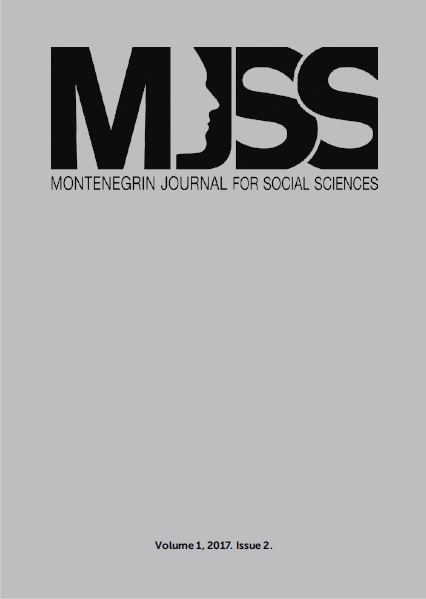DISKURS O ISTORIJI I NACIONALNOM IDENTITETU U CRNOJ GORI U PRVOJ DECENIJI NAKON OBNOVE NEZAVISNOSTI (2006. - 2016.)
DISCOURSE ON HISTORY AND NATIONAL IDENTITY IN MONTENEGRO
IN THE FIRST DECADE AFTER INDEPENDENCE (2006-2016)
Author(s): František ŠistekSubject(s): Political history, Nationalism Studies, Politics and Identity
Published by: Centar za Geopolitiku
Keywords: Montenegro; Narrative; Identity; Nations; Restoration of statehood
Summary/Abstract: The paper focuses on the discourse about history and national identity in Montenegro in the first decade after the re-establishment of independence in 2006. In the first section, the author pays attention to the increased role played by the period of the medieval state of Duklja (10th - 12th century) in the narratives of Montenegrin independence and specificity. The subsequent section represents a short overview of the role of the period of Ottoman rule and Montenegrin attempts to break free from the Ottoman empire from the 17th to the 19th century in contemporary discourses. Special attention is devoted to the personality of Petar II Petrović Njegoš, Montenegrin ruler and poet from the first half of the 19th century. His central role in Montenegrin narratives of history and identity was repeatedly confirmed during the bicentenary of his birth in 2013. In fact, Njegoš is often presented as an arbiter of identity whose opinions are still relevant, even binding today. In contrast to Njegoš, who is almost universally revered by both ethnic Montenegrins and Serbs, the re-examination of the role of Prince (later King) Nikola I Petrović Njegoš has taken a form of more moderate commemorations and critical discussions which have been markedly less emotional. In the following section dealing with the end of Montenegro´s independence in 1918, the unification with Serbia and the State of the Serbs, Croats and Slovenes and the interwar period, the author has noted that the glorification of armed struggle against the unconditional union with the Yugoslav state has largely obscured the less spectacular but arguably more important developments of the interwar period, when the collective identity of the Montenegrins was first formulated and modern Montenegrin culture was born. In comparison with Serbia and Croatia, the interest in the events of the Second World War is certainly lower in Montenegro. Finally, the author tackles the ambivalent attitude towards the socialist past, which largely remains to be discovered and integrated into the existing “grand narrative” about national history and identity.
Journal: Montenegrin Journal for Social Sciences
- Issue Year: 1/2017
- Issue No: 2
- Page Range: 115-134
- Page Count: 19
- Language: English

